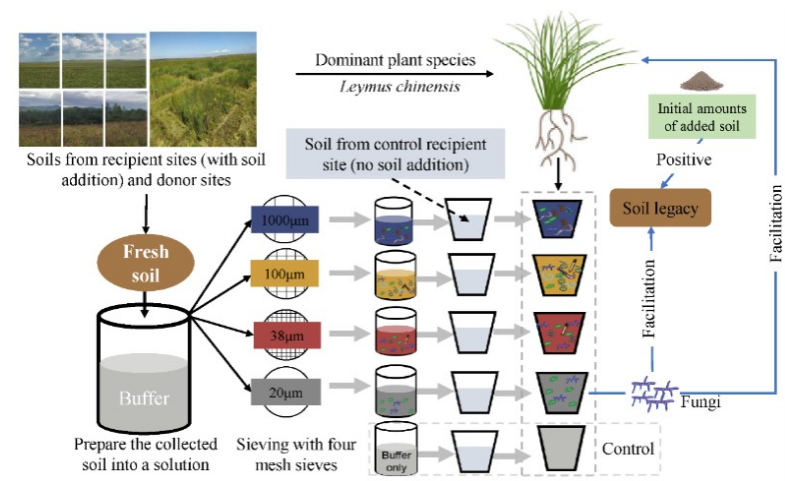
Newsroom
A recent study has revealed that tiny soil organisms, particularly fungi, play a crucial role in the long-term recovery of degraded grasslands. Four years after a one-time soil inoculation from donor sites, these small-sized organisms transferred from donor sites continue to influence soil microbial composition and promote plant growth within recipient ecosystems.
The study was published in Functional Ecology on March 6.
Conducted by researchers from the Institute of Applied Ecology of the Chinese Academy of Sciences, the study involved field experiments in which soil was introduced to degraded grassland plots. The researchers found that the lasting ecological benefits—known as legacy effects—were largely driven by soil organisms smaller than 20 micrometers in size, with fungi playing a particularly influential role.
These findings highlight the importance of plant-soil microbe interactions in ecological restoration.
The researchers further revealed that the amount of soil added during inoculation significantly influenced the magnitude of these legacy effects. This underscores the dual importance of both the quantity of soil introduced and the specific composition of small soil organisms in designing effective restoration strategies.
Overall, the findings offer valuable insights into ecosystem rehabilitation, emphasizing the often-overlooked but essential role of microscopic soil life in facilitating long-term ecological recovery.

Soil inoculation experiment and soil sieving treatment design framework (Image by LI Yuhui)
